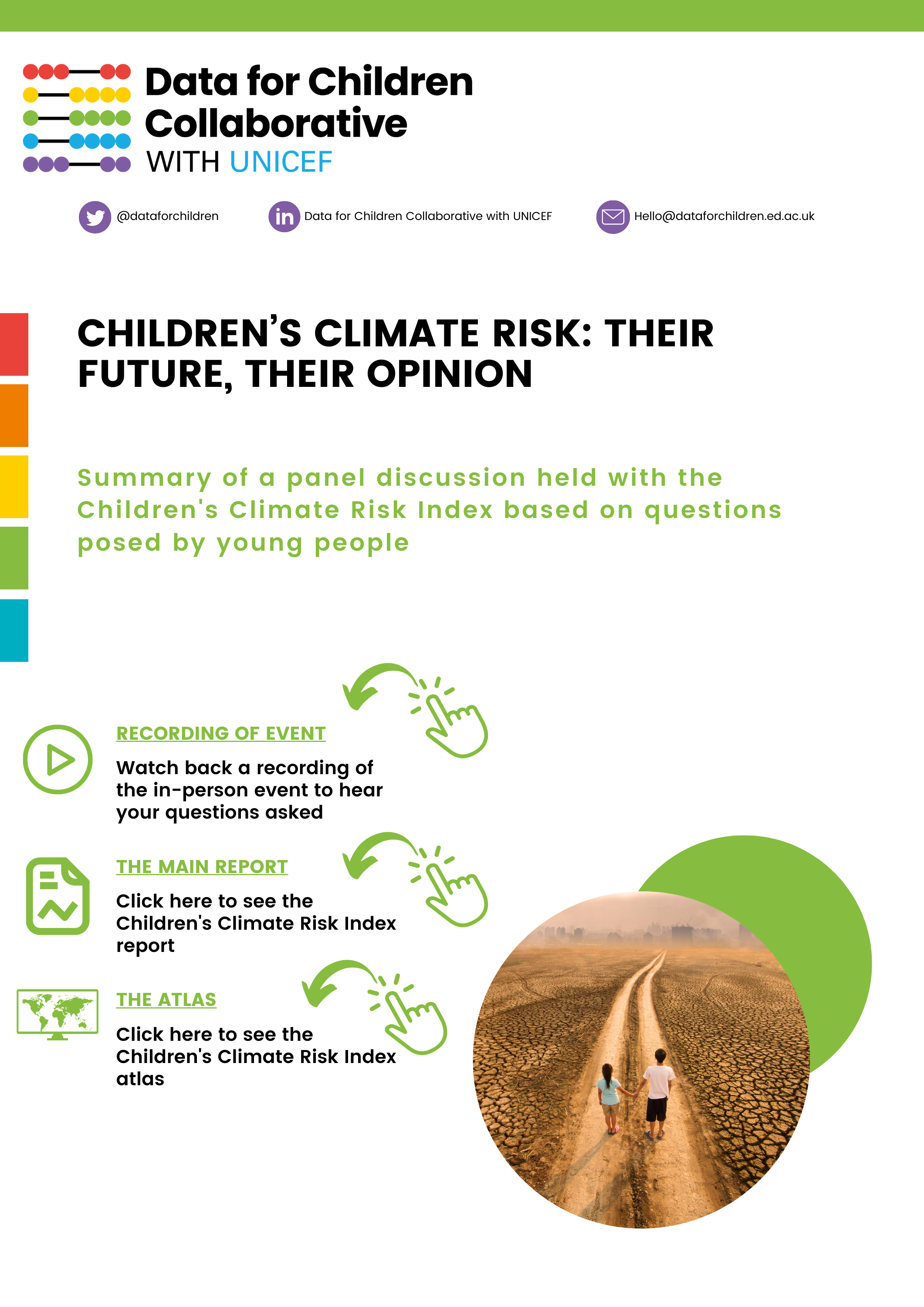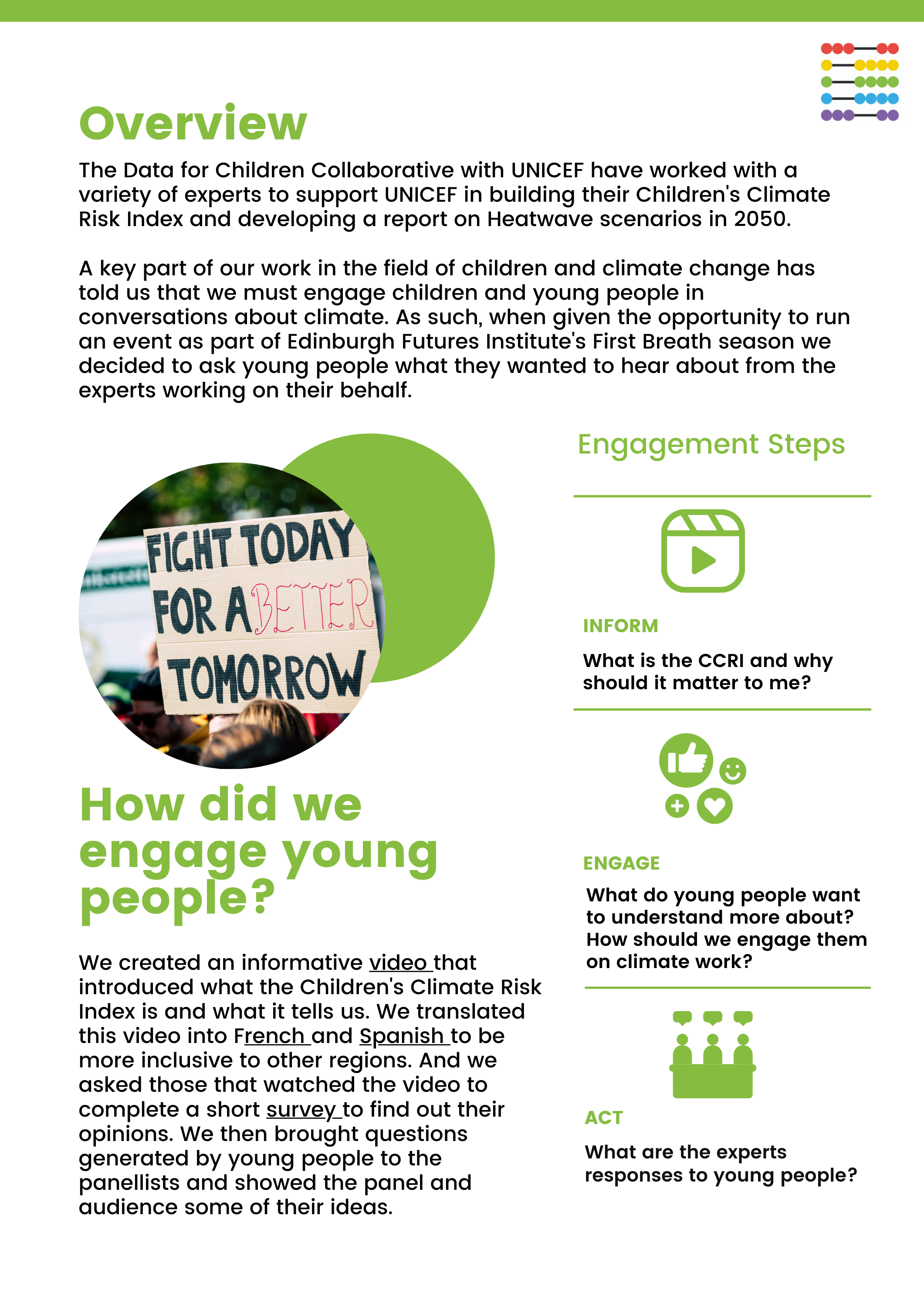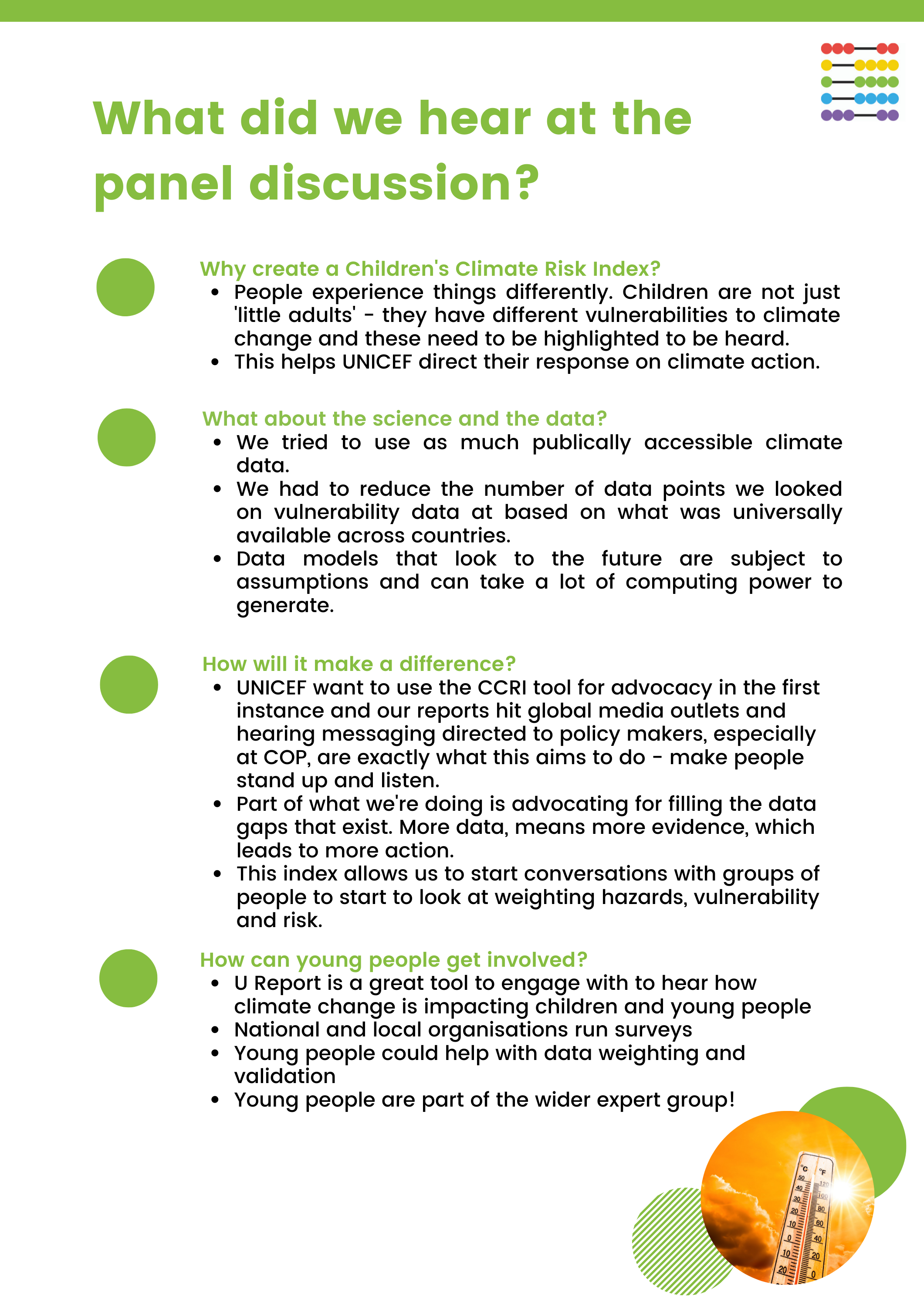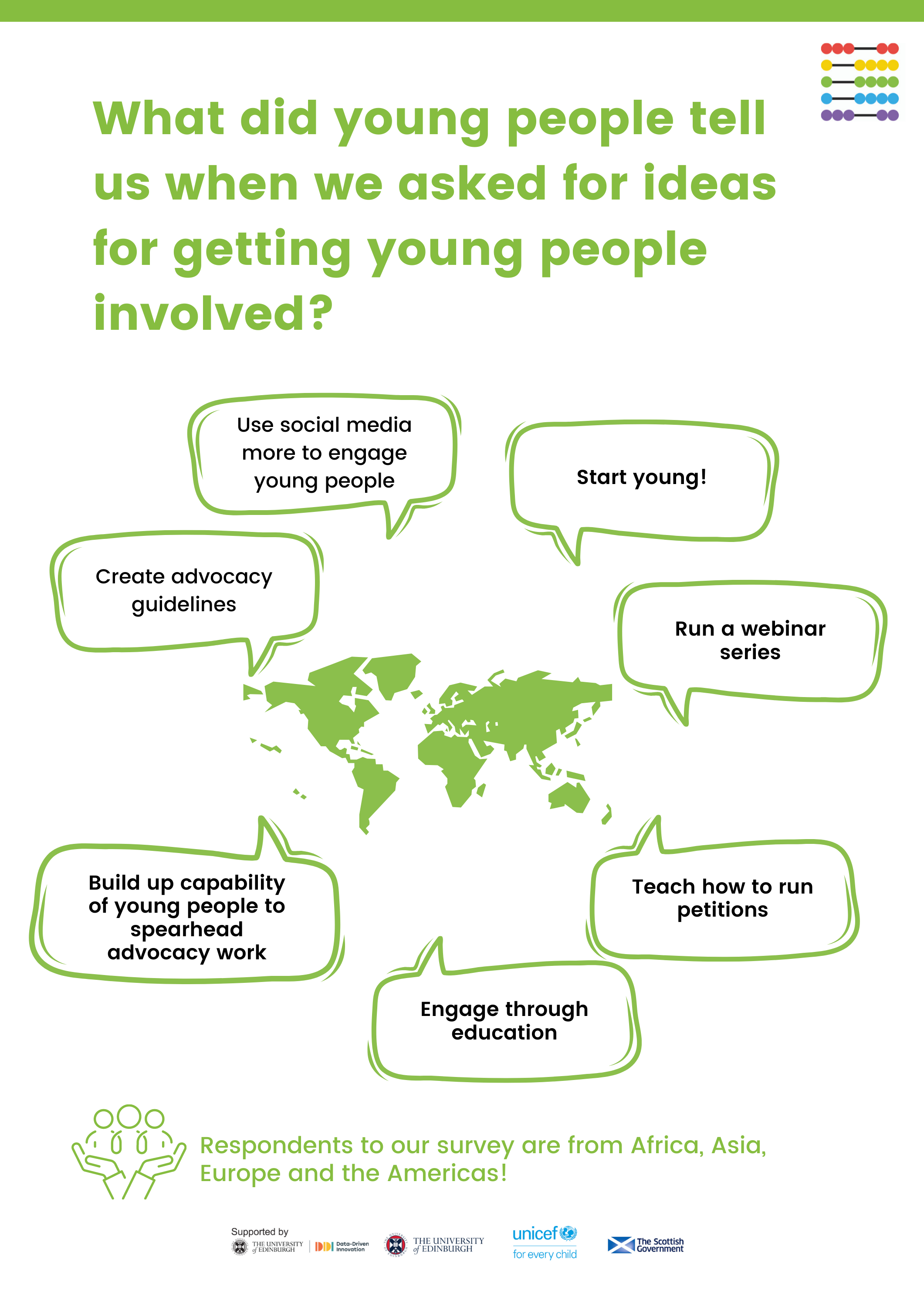Children's Climate Risk: Their Future, Their Opinion. Recording and a Summary of a Panel Discussion.
Earlier this month, we ran a panel discussion with the experts behind UNICEF’s Children’s Climate Risk Index (CCRI), which highlights how climate risk for children is significantly different from the broader community. Engaging young people has been a key finding in our research. In order to do just that, we created video explainers in English, French and Spanish about the CCRI and asked young people to submit the questions for the panel, which we then posed on their behalf at the event.
Read a summary of the event below, watch the recording and learn more about the CCRI project.




What is Children's Climate Index (CCRI) - video explainer we shared with young people.
Event Recording
Information about the speakers:
Craig Hutton has worked in sustainable development for 25 years and is Professor of Sustainability Science at University of Southampton. His applied research lies at the intersection of development, adaptation and the social and policy implications of environmental/climate change risk and sustainable management. His socio-environmental research emphasises the coordination of spatial data handling and the management, policy and governance implications of climate change and environmental vulnerability. Craig leads the SOGES Environmental Change & Sustainability (ECaS) and works with SDG requirements.
Sophie Lee works for UNICEF's Climate, Energy, Environment and Disaster Risk Reduction (CEED) division at the UNICEF Headquarters in New York. Her work involves climate research and programme support to advocate for children's rights to be placed at the centre of climate decision-making, policy and action. Interest is on climate risk projects that focus on protecting and empowering children and young people on the front line of the climate crisis. Sophie co-authored 'The Climate Crisis is a Child Rights Crisis: Introducing the Children’s Climate Risk Index (CCRI)' report launched in 2020, produced in partnership with the Data for Children's Collaborative.
James Mollard works at the University of Edinburgh, where he is a Postdoctoral Researcher in Natural Hazards for Disaster Risk Reduction. He obtained his undergraduate degree in Geophysics and Meteorology in 2013 at the University, before moving to the University of Reading to get a PhD in Climate Modelling. He worked for a further 4 years as a postdoc in Reading, working on a variety of projects, with topics ranging from atmospheric dynamics to satellite observations and future climate impacts. In early 2021, he moved back to the University of Edinburgh and began working on assessing the physical hazards associated with changing climate on the Children's Climate Risk Index (CCRI) project, quantifying the impact of events such as heatwaves, flooding and cyclones. He is also working on the Tomorrow's Cities project, which brings multi-hazard disaster risk management techniques to urban planning in rapidly developing cities across the globe
Dr Gary Watmough is an associate professor in Landuse and socioecological systems at the University of Edinburgh. Gary specialises in linking social, economic, environmental, and climate data to explore and understand complex socioecological problems. Gary specialises in developing proxy metrics for measuring poverty using multi-source non-traditional data such as very-high spatial resolution satellite imagery (<1m) and open street map data. Gary is particularly interested in developing methods for using satellite imagery to map and monitor aspects of human livelihoods and how this can be used to support the targeting of resources to areas that are in specific need. Gary is an active member of the Data for Children Collaborative, having worked on six separate research projects.

